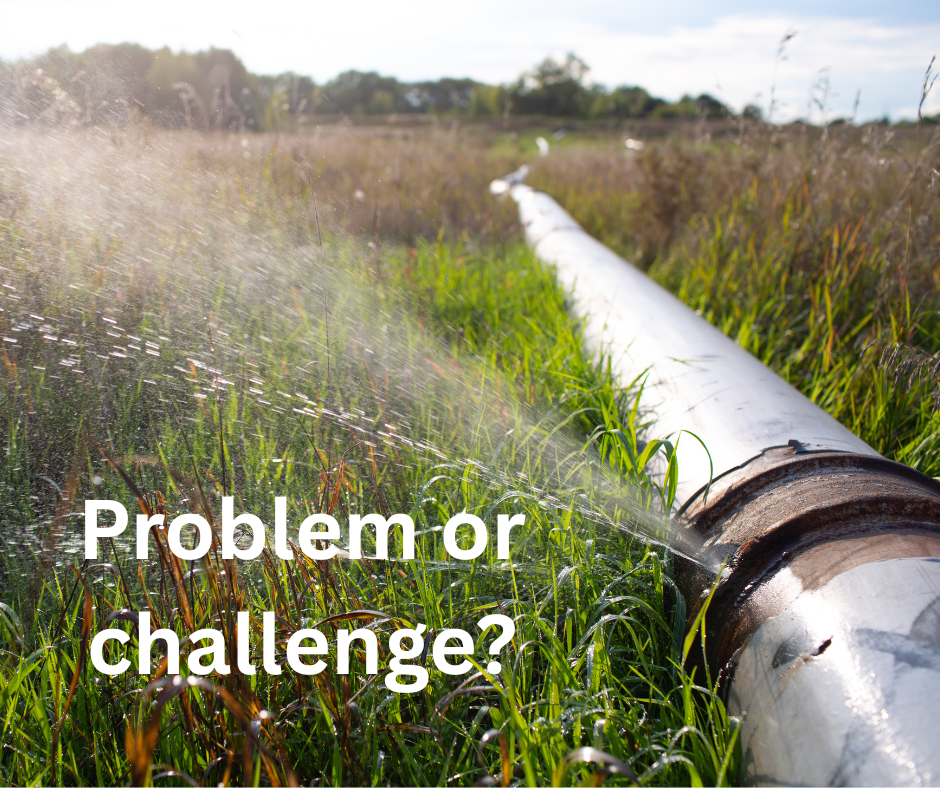Do You Have a Problem or a Challenge?
More than 15 years ago, when I started my personal development journey, I read many self-help books. One of the recurring pieces of advice was to replace negative words with positive ones, such as saying 'challenge' instead of 'problem'. I did my best to replace 'problem' with 'challenge' over many years, although often it felt false. Frequently, it was also unproductive because it diminished the sense of urgency and need to deal with the situation.
Over the years, as I implemented self-development tools, techniques and pieces of advice, I selected and kept those that worked for me, and started to read self-help books with a more critical and questioning approach. At the start of my self-development journey, I said to myself, "Who am I to doubt and criticise what these world-renowned people say?" Now, I check the research background, and if the research results support the method, I am ready to give it a try.
Does it really work to replace a word with another, in this case, 'problem' with 'challenge'?

Let's start from the very beginning, the definitions of the two words.
According to different dictionaries, a PROBLEM is
- "a situation, person, or thing that needs attention and needs to be dealt with or solved." (Cambridge Dictionary)
- "a question raised for inquiry, consideration, or solution; an intricate, unsettled question; a source of perplexity, distress, or vexation." (Merriam-Webster Dictionary)
- "any question or matter involving doubt, uncertainty, or difficulty; a question proposed for solution or discussion." (Dictionary.com)
- "a thing that is difficult to deal with or to understand." (Oxford Dictionary)
Conclusion: A problem is something difficult to understand or to deal with, that causes difficulty, uncertainty, doubt; it is a source of distress, perplexity or vexation, and NEEDS to be addressed, solved or dealt with. There is a need and urgency to do something about it.
The meaning of the word CHALLENGE according to different dictionaries:
- "the situation of being faced with something that needs great mental or physical effort in order to be done successfully and therefore tests a person's ability." (Cambridge Dictionary)
- "a stimulating task or problem." (Merriam-Webster Dictionary)
- "a call or summons to engage in any contest, as of skill, strength, etc.; something that by its nature or character serves as a call to battle, contest, special effort, etc." (Dictionary.com)
- "a difficult or demanding task, esp. one seen as a test of one's abilities or character." (Oxford English Dictionary)
Conclusion: A challenge is a demanding task that one desires to overcome, which tests a person's abilities while motivating and offering an opportunity for growth and a more positive outlook. There is no real sense of urgency here, but overcoming the challenge can bring benefits.
What happens when we name a serious problem a challenge? We might lose the sense of urgency that we need to address it; otherwise, it becomes bigger, and there will be negative consequences.

If I have a water or gas leak at home, it is a problem for me, but not a challenge. I don't have to stretch my abilities to overcome it. My solution to the problem is to call a specialist, and that is definitely not something that will stretch my abilities. For the repair person, finding the source of the leak might be a challenge if it is in a well-hidden place. But is it a problem? Hopefully not, because if it is, the person doesn't really know his/her profession. Someone's problem is not necessarily a problem for another person, but it could be a challenge.

If I don't have clients as a solopreneur, it is a problem I must urgently solve. The solution to my problem might be a challenge for me if I don't have marketing and sales skills. Finding and implementing a solution to a problem can pose challenges.
- Will I be more empowered if I use the word challenge to describe a problem?
- Will I be distressed, disempowered or anxious if I say something is a problem?
Maybe yes, maybe not. It depends on my attitude, mindset and self-confidence.
How much will it help me if I reframe my problem as a challenge if I have a negative attitude and mindset, and low self-confidence? Most likely, it won't do the trick because a challenge is still something that stretches my abilities. If I don't believe in my abilities to overcome the challenge, the change in the wording won't help. While it takes away the sense of necessity to solve the problem, I can still say to myself that it is too big for me, I am not able to handle it, and I'll just give up on taking action. As long as I don't do the internal work on my mindset, attitude and confidence, just changing the nouns I use won't really help me.
I don't say that replacing the word 'problem' with 'challenge' never works for anyone. It didn't work for me as long as I had a lot of limiting beliefs and a negative attitude toward many aspects of my work and life. After dealing with many of my mindset issues, I just use the word that better describes the situation.

Questions for reflection:
- What is your experience with the two words?
- Do you use the word 'problem'? How does it influence you?
- If you replaced the word 'problem' with 'challenge', did it help you to solve the problem?

